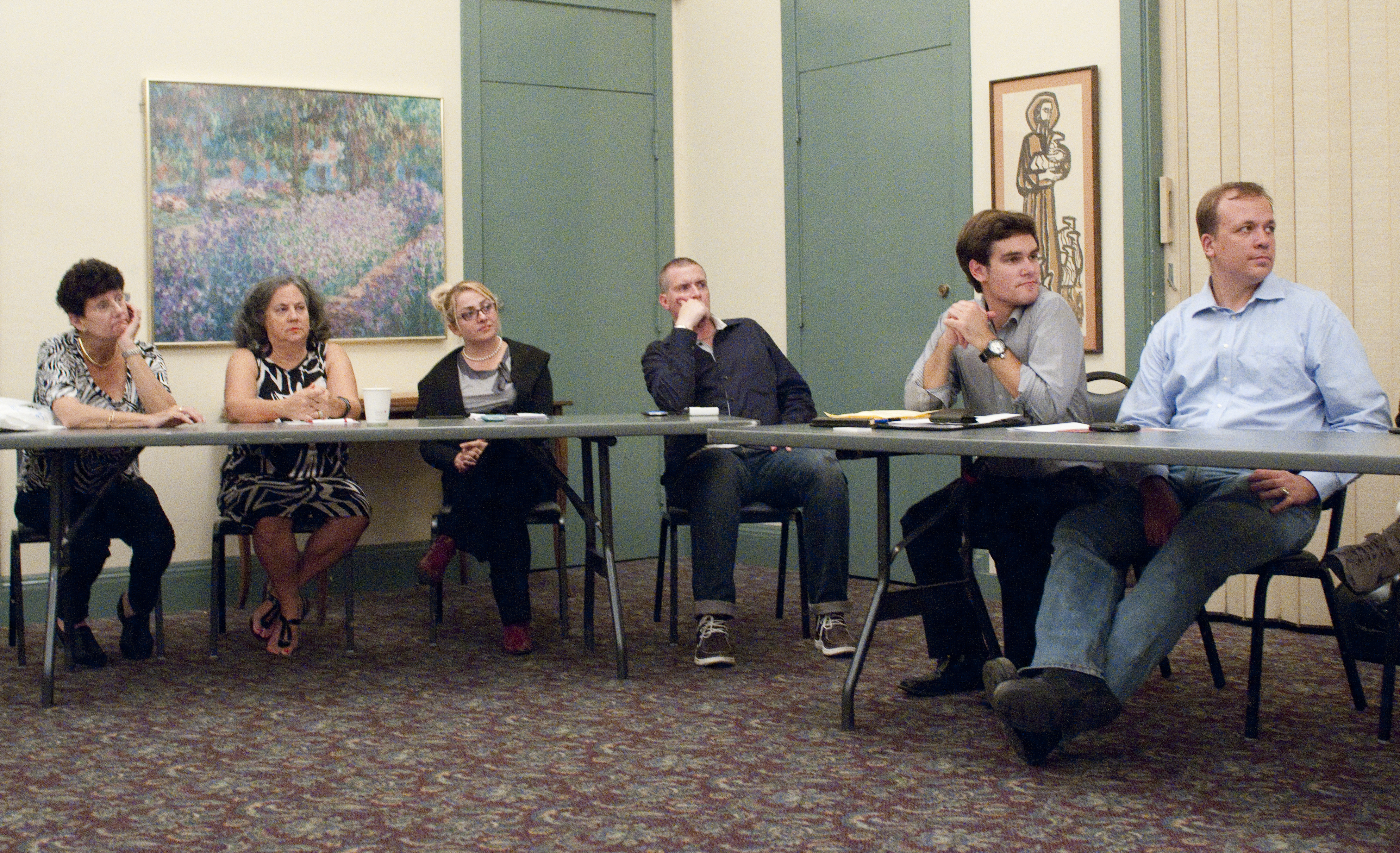The first question posed Wednesday night at the candidate forum for the Westwood Neighborhood Council resulted in mumbles from the election administrator, impassioned interruptions from the incumbents and frustrated follow-ups from the audience.
It was the most heated response of the night and revolved around what should be a non-issue.
The question: What are the voting procedures on election day?
The Westwood Neighborhood Council is truly a useful tool for students and community members to make tangible changes at the local level. The forum brought to light two main issues: one, the council needs to search within and improve its internal community.
Second, some on the council see UCLA as a threat to Westwood.
This prevents the council from fully and cohesively serving the entire neighborhood.
The first roadblock the council suffers from is a lack of commitment: of the 35 candidates running for the council’s 19 seats, only 14 showed up to Wednesday night’s candidates’ open forum at the Westwood Presbyterian Church.
If the very candidates running for positions on the council do not attend campaign events, how will they make decisions and, more importantly, implement them?
To effect significant change and become an operative partner in the betterment of Westwood, the council must reach consensus on key issues internally and provide a unified, committed message externally.
As it stands, the council seems detached from its constituency: fewer than 10 audience members were present at Wednesday’s meeting, myself and another reporter included.
Participants in the forum brought a variety of proposals to the sparsely occupied table. Their ideas ranged from the beautification of the Westwood neighborhood to measures that might ease the area’s congested streets.
But they disagreed on the breadth and implementation of these goals.
The role of the neighborhood council is purely advisory, said Jerry Brown, the council’s president. For this reason, actual implementation of many platforms are often beyond the group’s reach.
First, the council must clearly define itself, keeping its advisory role in mind; only then can it start to enact legitimate measures and extend the influence of the council.
Although the neighborhood council is limited in its jurisdiction, it has both the connections to the city council and the financial resources necessary to lead significant impact, but only if it first substantially improves community outreach and internal organization.
The council is allocated $35,000 by the Los Angeles City Council, a sum which groups in Westwood can access.
“Our real focus (should be) on what can we do pragmatically within our means to solve these problems. The fundamental basis is relationships,” said Mike Stajura, a renter seat candidate and UCLA graduate student in the Fielding School of Public Health.
To supplement its advisory mission, the council should partner with UCLA, which could provide a powerful partner in shaping Westwood.
This too ““ the extent of collaboration between the council and UCLA ““ was also a point of contention among candidates.
Brown, for example, referred to UCLA as the “gorilla that must be dealt with.”
He and others at the forum said they are concerned that Associated Students UCLA and other on-campus enterprises pose disproportionate competition to the Westwood community.
Because UCLA is state-owned, the school does not have to abide by the same city-wide restrictions as independent businesses in Westwood.
While UCLA stores could prove heavy competition for stores in Westwood, this does not mean that UCLA students and affiliates should be ignored or disregarded in the Westwood Neighborhood Council’s considerations ““ students are a large and important constituency that injects a large sum of money into the Westwood economy.
Although UCLA’s individual population is largely transitory, the campus community as a whole has been around for more than 80 years.
The Westwood Neighborhood Council should not isolate such a huge constituency, but rather embrace its mutual interests. It must also remain committed to representing the entire community, and at the very least communicate a clear message about its intentions and procedures.
Email Ferdman at mferdman@media.ucla.edu. Send general comments to opinion@media.ucla.edu or tweet us @DBOpinion.
